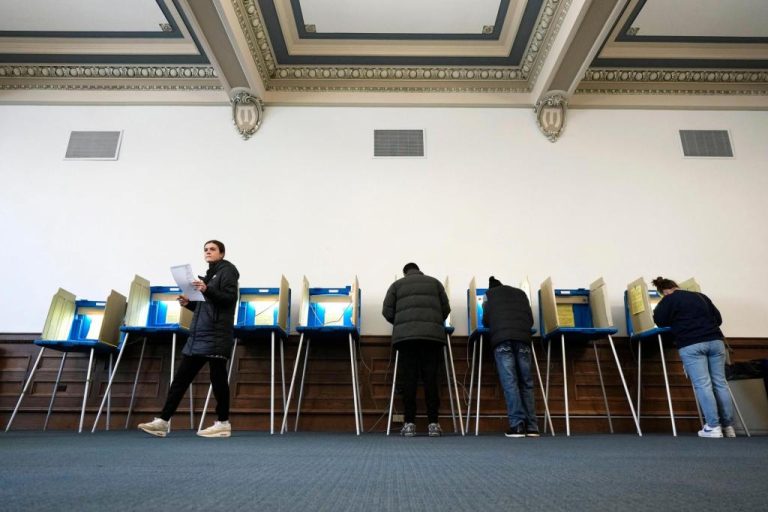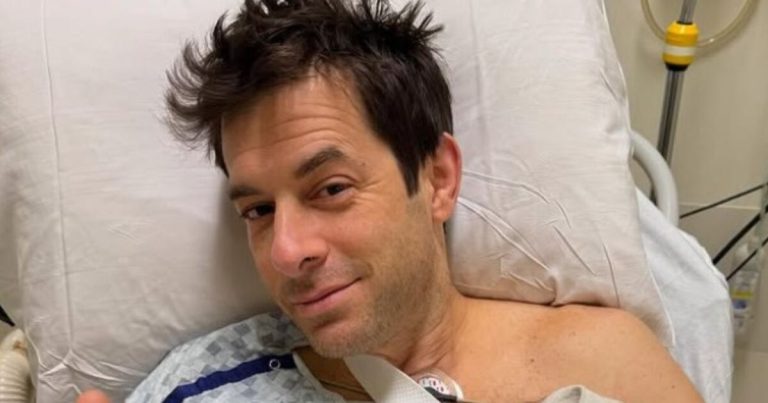
Matthew Rascon is one of several Democrats challenging Rep. Darrell Issa for his East and North County congressional seat. He also ran in 2022 but did not advance beyond the primary.
To help inform voters, the San Diego Union-Tribune asked all the candidates a series of the same questions about their priorities, positions and campaigns. Their emailed answers have been lightly edited for clarity.
Why are you running, and what makes you the best candidate?
I’m running to give the 48th true representation. Too much of Congress is people from outside their district, or who put self-gain first while only catering to their voting base. As a representative, I plan to listen to the whole of the constituency and set aside the constant “us vs. them” rhetoric you see from so many candidates to push for bipartisan efforts that can fix the issues facing the nation and the people that call the 48th home.
I’m a local who has friends and family across the political spectrum, and there is no way to heal the political divide if we elect those who put ego first or those that would villainize half the country for not voting for them. I aspire to be not a politician, but a public servant dedicated to improving this great nation.
What are the top 3 issues facing this district and California generally?
The cost of living is making it increasingly difficult for the average Californian to save for retirement or even maintain a comfortable standard of living. Our infrastructure needs desperate repair, and expansion. The lack of mixed-use zoning in many areas, paired with red tape stopping expansion and revitalization, is feeding into our housing crisis and the cost-of-living issue.

Matthew Rascon, 2024 primary candidate for California’s 48th Congressional District
(Courtesy of Matthew Rascon)
Lastly, the often-overlooked agricultural burdens brought on by issues like climate change and the rapidly increasing population of wild boars both is a problem for California and limits our ability as a nation to push towards meeting our produce needs domestically. Years of drought mixed with bouts of heavy rain limit our water and the ground’s ability to store what we get. Storms and droughts prevent consistent crop yields, and nationally boars cause over $1 billion of agricultural damage each year.
What are the first 3 things you would do in your first term in Congress?
The first three things I would do once elected would be to push for a joint resolution placing term limits on members of Congress, something that has been proposed from members of both parties in both the Senate and House in the past.
Second, I’d work on introducing a bill that curbs and punishes stock trading by members of Congress. We need real deterrents and consequences for those using their positions for self-enrichment, not some rarely applied fine like with the STOCK Act.
Lastly, I would push for overhauls to our electoral system to try and move the country away from the campaign industrial complex where corporate donors hold more sway over elections that the American people and the needs of the few ultra-wealthy and businesses outweigh the needs of the people.
What would you do to curb climate change and its effects on California?
Congress can combat climate change by focusing on making it an economically favorable option. A higher focus on the economic potential of greener initiatives can make actions to deal with climate change more palatable.
One such concept Congress can look at is shifting subsidies and creation of more specialized grants to spur on a transition to large scale vertical farming operations. Controlled-environment agriculture (CEA) can allow for more growth at reduced land usage. While requiring an initial investment, it can help reduce unneeded land usage while helping to ensure American agricultural independence as we create the environment for the crops we need.
How should U.S. migration and asylum policy change, what should guide it, and what specifically will you pursue in Congress?
Two areas in need of re-evaluation are the U.S. capped percentage by country for immigration, and how we go about the distribution of immigrants seeking new life in the U.S.
The attempted Fairness for High Skilled Immigrants Act of 2019 was a move in the right direction that would move our system to a more merit-based one that allowed the U.S. to allow in, and benefit from, skilled laborers wishing to come to America. That, paired with new programs designed to place new arrivals in less densely populated states needing certain skills sets, could help our great nation flourish.
What is your stance on the war in Gaza, and on U.S. involvement in and support of it?
I’m completely behind a cease-fire. UN member nations have called the actions of (Israeli Prime Minister Benjamin) Netanyahu’s administration a genocide, and the targeting of civilians is never justified, even in retaliation for something as horrific as the Oct. 7 attack.
The U.S. shouldn’t have provided, nor should it provide, support to Israel in relation to the war in Gaza, and the only involvement we should have, if any, is the provision of humanitarian aid for the citizens affected by the war.
Would you support federal statutory restrictions on, or protections of, abortion rights? Which, and to what extent?
As our Constitution and Supreme Court currently stand, both protections and restrictions sit in a gray area on the federal level. Many have pointed to the establishment clause of the First Amendment as a basis for protections, as bans on abortion infringe on religious freedoms and customs. Others have pointed out that use of that defense would make funding to groups like Planned Parenthood equally guilty of breaking this clause by providing federal funds in support of a particular religion (oppression vs. establishment).
Ultimately, unless protections are added via constitutional amendment, it’s currently relegated to a states issue in our system.
Would you support or oppose stricter federal gun laws and background checks? Which, and to what extent?
I’m a strong believer in regulations over bans. There is no such thing as “almost airtight,” and with over 80 million gun owners, total bans can’t work retroactively. Stronger regulation paired with mandatory and strict background checks are needed. This would include requiring a federal license for all gun sales and resales.
Lastly, if we are going to call the issue of gun violence a “mental health issue,” then we need an actual overhaul of our mental health systems with the funding to look at and treat the underlying causes leading to gun violence.





